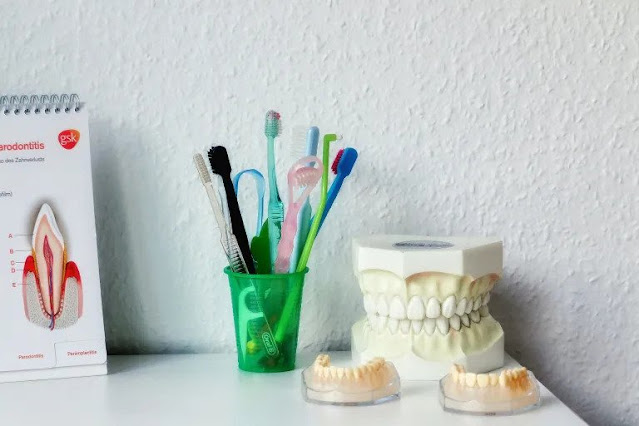5 Oral Hygiene Tips for the Whole Family
Oral hygiene is essential for maintaining healthy teeth and gums. Good oral hygiene habits should start from a young age and continue throughout a person's life. In this article, we will discuss five oral hygiene tips that are suitable for the whole family.
A beautiful smile is a priceless possession. However, it requires more than just brushing your teeth twice a day. Oral hygiene is essential for maintaining healthy teeth and gums, which can prevent dental problems such as cavities, gum disease, and bad breath. To avoid emergency tooth removal follow the best oral care routine Keep reading to learn about five oral hygiene tips that the whole family can adopt for better dental health.
Introduction:
Oral
hygiene is the practice of maintaining cleanliness in the mouth to
prevent dental problems. This involves brushing teeth regularly,
flossing, and avoiding sugary foods and drinks. Good oral hygiene
habits should start from an early age and continue throughout a
person's life. Parents should encourage their children to adopt good
oral hygiene practices and make them a habit.
The whole family can benefit from practicing good oral hygiene habits. Here are five oral hygiene tips that can help you maintain healthy teeth and gums.
5 Oral Hygiene Tips for the Whole Family
Tip 1: Brush Your Teeth Twice a Day
Brushing your teeth is the most fundamental aspect of oral hygiene. You should brush your teeth twice a day, for at least two minutes each time. Brushing helps remove plaque and food particles that can lead to cavities and gum disease. Use fluoride toothpaste to strengthen your teeth and prevent decay. It is also essential to replace your toothbrush every three to four months or sooner if the bristles become frayed.
Tip 2: Floss Daily
Flossing is an essential part of oral hygiene that helps remove food particles and plaque from between your teeth. Use a dental floss to clean between your teeth once a day. If you find flossing challenging, consider using an interdental brush or water flosser. These tools can help you reach areas that are difficult to access with traditional floss.
Tip 3: Eat a Healthy Diet
A healthy diet is essential for good oral hygiene. Avoid sugary and acidic foods that can erode your tooth enamel and lead to cavities. Instead, eat a diet rich in fruits, vegetables, whole grains, and lean protein. These foods can help strengthen your teeth and gums and provide essential nutrients for good oral health.
Tip 4: Limit Sugary Foods and Drinks
Sugary foods and drinks can increase the risk of cavities and gum disease. Limit your intake of sugary foods and drinks, such as soda, candy, and desserts. If you do indulge in sugary treats, be sure to brush your teeth afterward. Drinking water after eating sugary foods can also help wash away food particles and prevent cavities.
Tip 5: Visit Your Dentist Regularly
Regular dental checkups are essential for maintaining good oral hygiene. Visit your dentist every six months for a checkup and cleaning. Your dentist can detect early signs of dental problems and treat them before they become more severe. Regular cleanings can also help remove plaque and tartar that brushing and flossing alone cannot.
Conclusion
Maintaining good oral hygiene is essential for preventing dental problems and maintaining a beautiful smile. The whole family can benefit from adopting good oral hygiene practices such as brushing twice a day, flossing daily, eating a healthy diet, limiting sugary foods and drinks, and visiting the dentist regularly. These simple tips can help you maintain healthy teeth and gums and prevent dental problems for a lifetime.




Comments
Post a Comment